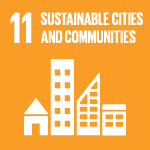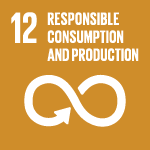Posted in: 10/15/2023
Conscious and sustainable consumption has become a concern for the Brazilian population in the face of climate change and its impacts, this is what the study Portraits of Society : sustainable habits and conscious consumption , carried out by the National Confederation of Industry (CNI), shows.
According to the survey, 50% of participants said they check whether the product they consume is produced in an environmentally sustainable way, of which 26% check most of the time and 24% always check . This result shows that some Brazilians are concerned about the effects of unrestrained production on the environment .
The research also shows that people over 41 are those who consume more consciously and sustainably, exceeding 50%. Furthermore, those who earn more than five minimum wages are more willing to spend on more sustainable products , such as organic food.
When purchasing, the Brazilian population still takes into consideration factors such as circular economy , environmental impact and social responsibility , according to a survey carried out by Ecglobal , a research solutions company in the digital market in Latin America.

Ecglobal data shows that people prefer to consume products that have the lowest possible environmental impact , with recyclable packaging and no added chemicals. Furthermore, the people interviewed believe in the potential of sustainable consumption to reduce climate impacts caused by human actions.
In addition to consuming more consciously, the Brazilian population has been concerned about best practices when separating and disposing of the waste produced . According to the CNI survey, 69% of people interviewed are in the habit of separating trash for recycling.
Among the most recycled products are:
But, even with a large portion of the population that already separates and recycles waste, 32% of people who responded to the CNI survey reported that they find it difficult to recycle due to a lack of habit or forgetfulness when separating . It is worth highlighting that 8% of people experience difficulties due to a lack of information or even a lack of selective collection in their regions.
A survey by the Brazilian Association of Public Cleaning and Special Waste Companies (Abrelpe) showed that one in four cities in Brazil does not have selective collection , which drives incorrect disposal.
To increase recycling numbers , the National Solid Waste Plan ( Planares ) was implemented in 2022, which, through targets, aims to increase the recycling rate to 48% in 2040.
Furthermore, there are recent initiatives that seek to strengthen associations and cooperatives of waste pickers , to improve the working conditions of these people, such as the Diogo de Sant’Ana Program: Pro-pickers and Pro-pickers for Popular Recycling .


Sign up and receive our news.